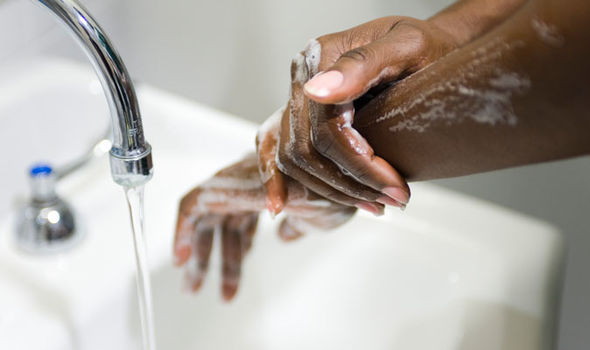
COVID-19 appears, handwashing gets prioritised!
Handwashing with running water and soap has finally received the prominence it deserves. Handwashing is now being championed as a way of minimising the spread of COVID-19.
Handwashing is finally important. And for handwashing, people need access to safe water and soap.
Advertisement
Here is the challenge. Three billion people across the globe lack water and soap in their homes and 900 million children lack water and soap at their school, according to the Joint Monitoring Programme. Many of these people are in Africa.
Moreover, it is often difficult to say precisely how challenging the situation is because there is generally a lack of data.
For instance, there is no dependable data on hygiene practices or availability of soap and running water in households. We can use the data on general access to potable water to register the remaining challenge.
Let us take two examples. In Ghana, the number of people without access to sanitation is 24 million (the total population is 29 million) and those without water are approximately 5.5 million. Nearby Nigeria, with a population of 190 million, the population with access to safe water is 55 million, while 116 million do not have access to sanitation.
Both of these countries are resource rich. Ghana is the second largest producer of gold in the world. Nigeria is the 6th largest producer of oil in the world.
Why?
Why are these countries unable to ensure that their populations have access to safe water, sanitation and hygiene? For decades, many African countries have not invested adequately in water, sanitation and hygiene (WASH).
It must be noted that the Structural Adjustment Programme (SAP) imposed by the Word Bank and International Monetary Fund (IMF) in the 1980s was a key factor undermining investment in WASH by many African countries.
Other factors impeding investment in WASH include: the commodification of water, privatisation, tax evasion by transnational corporations, urbanisation and growing inequality.
Consequently, WASH services in many African countries remain unable to meet demands of citizens; this ensures that many people, especially those most marginalised, do not have access to the necessities for hand hygiene.
After COVID-19, whatever its duration, people will continue to need water for handwashing and healthcare facilities will need to have handwashing stations in maternity wards and near toilets.
After all, handwashing remains the most important and cost effective preventive health intervention.
Gaps
So, if COVID-19 has brought the importance of handwashing to public health to the forefront, we need to urgently address the gaps that COVID-19 has placed in such stark relief.
Adequate and consistent investment in water, sanitation and hygiene services is critical. According to the government, the country needs to invest $387 million in the WASH sector every year if it is going to achieve its 2025 target for universal coverage. This is considerably less than what the World Bank recommends – $1.6 billion.
Even if we take the average of these two figures, huge investments are necessary. This is in accordance with the African Development Bank’s (AfDB) assessment of the huge infrastructure deficit. According to the AfDB, the infrastructure deficit across Africa is approximately 130 -170 billion dollars annually.
Critically, investment must not only focus on WASH infrastructure. Attention to the ‘soft-side’ is necessary. Consider investment in hygiene behaviour change communication (BCC).
Appropriate hygiene behaviour
In short, if COVID-19 disappeared tomorrow, we must ensure appropriate hand hygiene behaviours are practised.
For this to happen, sustained hygiene behaviour change campaigns are necessary. This requires adequate and sustained funding. It is also necessary to ensure that the requisite skill in BCC is developed among workers across the health, nutrition, education and WASH sectors.
For hand hygiene to become normal, it is necessary that government leads the way in the implementation of integrated hygiene programmes that cut across multiple sectors; that financing and institutional mechanism are robust and systematically deployed; that behaviour change interventions are culturally appropriate and their monitoring is focused on actual changes in hygiene behaviour.
We are all looking forward to the end of COVID-19. Good hand hygiene, however, must last. This requires that we systematically maintain prioritisation of hygiene into the future.
The writer is a Policy Analyst. His writings cover topics ranging from water, sanitation and hygiene (WASH), health, housing, agroecology and political economy.




